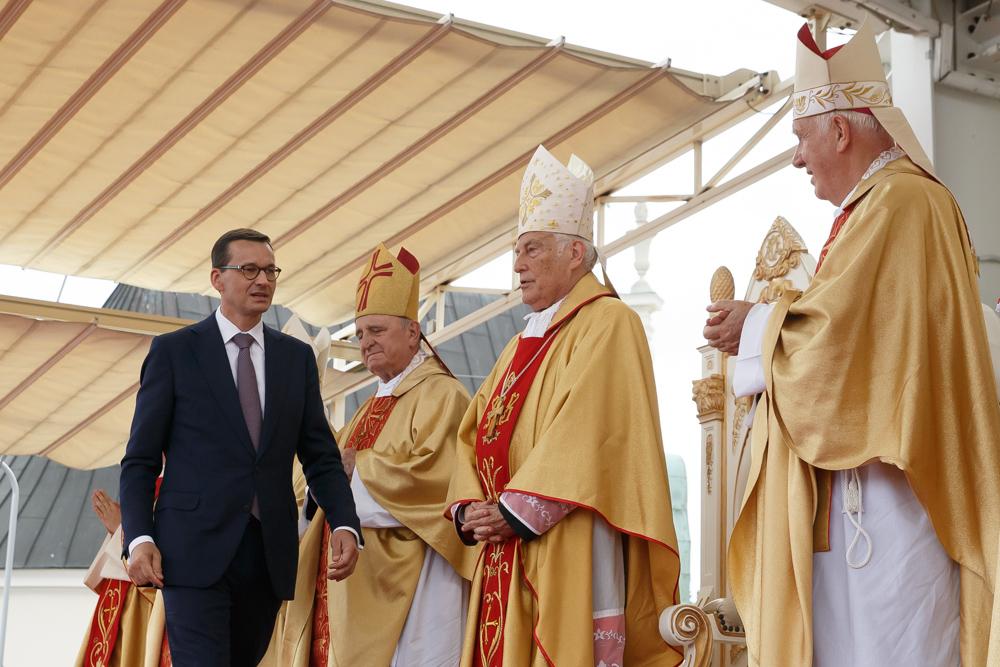The government last year paid a record 200.2 million zloty (€45.5 million) into the Church Fund (Fundusz Koscielny), a system that provides state subsidies for the health insurance contributions of clergy, for religious organisations’ charitable activities, and for the renovation of religious buildings.
Last year’s contribution to the fund was double the figure of 94.3 million zloty a decade earlier, in 2012. Over the previous decade, the amount had risen only 25%, from 75.9 million zloty in 2002.
This year the government’s contribution is set to rise again, to 216 million. However, some opposition parties have suggested they will abolish the Church Fund if they come to power at this autumn’s elections.
Nowy rekord funduszu kościelnego. Przebił 200 mln złhttps://t.co/Rr6ewtE38b
— Rzeczpospolita (@rzeczpospolita) June 23, 2023
The Church Fund was established in 1950 under the communist regime as a form of compensation for property seized from the church.
Despite its name, it provides funds to all recognised religious associations recognised under Polish law, of which there are over 160. However, the Catholic church, which is by far Poland’s biggest, receives the majority of the money – though the exact amount is not disclosed. Over 90% of Poles are officially classified as Catholic.
Although much property seized from religious groups was returned after the fall of communism in 1989, the Church Fund continued to function, with the Catholic church arguing that it had not been fully compensated for losses under communism.
If Poland is to have a future, attacks on the Catholic church must not be tolerated, says Kaczyński.
"We must reject those trying to destroy Poland, collaborating with external enemies," he warned after a mass marking the anniversary of his mother's death https://t.co/f6KOJ0jdvy
— Notes from Poland 🇵🇱 (@notesfrompoland) January 17, 2022
Last year, the government was supposed to contribute 192.8 million zloty to the fund. But that was increased to 200.2 million to finance higher-than-anticipated liabilities for the clergy’s social and health insurance contributions, notes the Rzeczpospolita daily, which first reported the figures.
Taxpayers’ contribution to the fund generally increases over time because the amount is linked to the minimum wage, which the government regularly raises, reports the newspaper.
The continued existence of the fund has, however, became an increasingly divise issue in a country that, though still one of Europe’s most religious, is rapidly secularising and which has seen the Catholic church embroiled in clerical sex abuse scandals and criticised over its support for an unpopular near-total ban on abortion.
MPs who vote to allow abortion are “committing a grave sin and cannot receive holy communion”, says the head of Poland's Catholic church.
All main opposition parties – most of whom have practising Catholic leaders – want to liberalise the abortion law https://t.co/nKWEEAJuJF
— Notes from Poland 🇵🇱 (@notesfrompoland) June 22, 2023
Donald Tusk, the leader of Poland’s largest opposition party, the centrist Civic Platform (PO), has pledged to “immediately” set about separating the church from the state if he comes to power this autumn, including “stopping the flow of money to the church”.
Szymon Hołownia, leader of the centrist Poland 2050 (Polska 2050), has also promised to end the “corrupting” links between church and state, including by abolishing the Church Fund. Both he and Tusk are practising Catholics, and Hołownia once trained to become a priest.
Meanwhile, The Left (Lewica), the second-largest opposition group, is the most anti-clerical of the main political parties. It wants to bring an end to what it sees as the privileged position of the Catholic church in Polish public life, including Catholic catechism classes funded and hosted by public schools.
However, the ruling national-conservative Law and Justice (PiS) party is close to the church, with its chairman, Jarosław Kaczyński, saying that any threats to the church “cannot be tolerated”. The far-right Confederation (Konfederacja), which may be a kingmaker after the elections, also opposes abolishing the Church Fund.
Donald Tusk has pledged to separate the church from the state after winning elections
He accused bishops of becoming “government functionaries”, saying it is their fault – not that of believers such as himself – that the church has separated from society https://t.co/GOYX4jd6h0
— Notes from Poland 🇵🇱 (@notesfrompoland) May 23, 2022
Main image credit: KPRM (under CC BY-NC-ND 3.0 PL)

Alicja Ptak is deputy editor-in-chief of Notes from Poland and a multimedia journalist. She has written for Clean Energy Wire and The Times, and she hosts her own podcast, The Warsaw Wire, on Poland’s economy and energy sector. She previously worked for Reuters.




















